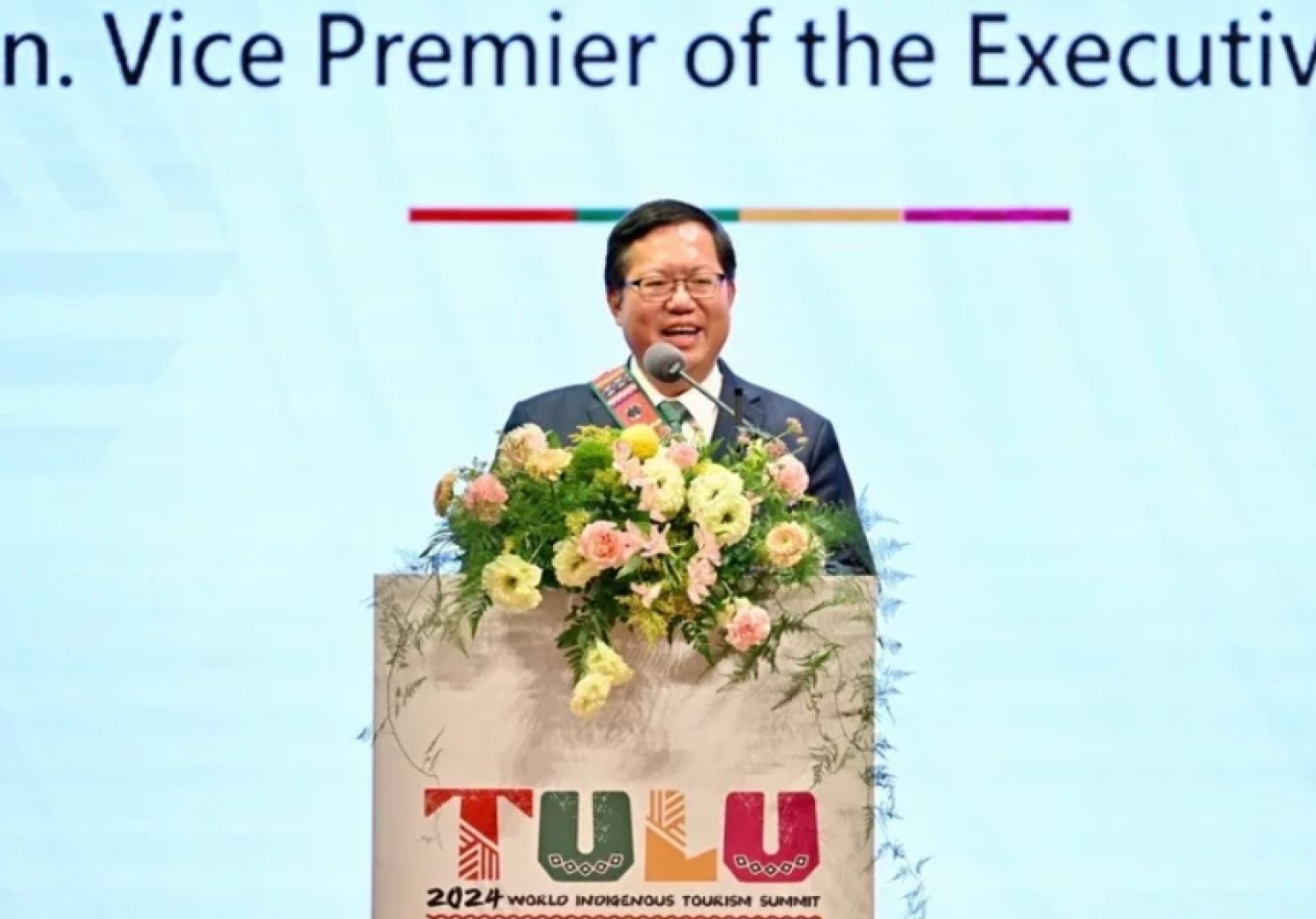
China Will Not Appreciate "Independence" Motives Behind Lai's Personnel An-nouncements
United Daily News, April 21, 2024
A month before the inauguration of William Lai as president, mainland China’s Civil Aviation Administration (CAAC) announced the implementation of new airspace routes in the Taiwan Strait, coinciding with the mainland’s Ministry of Commerce (MOFCOM) disclosing Taiwan's dumping of polycarbonate exported to mainland China. These actions collectively serve as a cautionary signal from the mainland to the incoming Lai administration, indicating a deterioration in cross-strait relations.
Recently, rumors have circulated about personnel choices within the incoming government. For instance, Chiu Chui-cheng, currently vice chairman of the Straits Exchange Foundation (SEF), will reportedly assume the position of minister of the Mainland Affairs Council (MAC), while Vice Premier Cheng Wen-tsan is expected to take over as SEF chairman. Some view these moves as an olive branch extended by Lai towards the mainland, aiming to leverage Chiu’s expertise and pragmatism, along with Cheng’s adept communication skills. Additionally, both individuals bring prior experience in handling mainland affairs, fostering hopes for positive outcomes in cross-strait exchanges or, at the very least, reassurance for the mainland.
However, judging from the latest announcements by CAAC and MOFCOM, as well as the ongoing disturbance of Taiwan by mainland military aircraft, it appears that China remains unconvinced. Stepping back, this raises questions about the effectiveness of Chiu Tai-san and David Lee in communicating with mainland China. Are they lacking in communication skills?
When he initially took office as minister of the MAC, Chiu Tai-san emphasized, "Instead of sending planes here, we should create business opportunities." As far back as 2004, during his tenure as vice minister of the MAC, he facilitated the first cross-strait direct chartered flights for the Spring Festival. With his extensive connections in China, one would expect smoother cross-strait relations. However, over the past three years, relations have not just stagnated; they have deteriorated significantly.
As a KMT veteran, Lee dedicated himself over the past eight years, serving in various key roles including Minister of Foreign Affairs, secretary-general of the National Security Council, secretary-general of the Office of the President, and SEF chairman for the second time under the Democratic Progressive Party (DPP) administration. Upon returning to his position as SEF chairman, he expressed hope that the foundation could facilitate visits to the mainland, enabling interaction with the Chinese people and addressing the needs of Taiwanese business people. However, despite these aspirations, accessing the mainland and fostering communication through the SEF has proved challenging over the years.
Moreover, it's unjust to blame Chiu Tai-san and Lee for the current state of cross-strait relations. Similarly, we shouldn't place undue expectations on future figures like Chiu Chui-cheng and Cheng to rectify the situation. The fundamental dynamics of cross-strait relations persist regardless of who holds positions such as committee chair or board chairman.
The future trajectory of cross-strait relations may be discerned from the personnel choices made by the incoming Lai administration. While the appointments of Chiu and Cheng may signal goodwill, greater significance lies in examining the "three tasks" outlined by Lai during the commemoration ceremony for pro-democracy activist Cheng Nan-jung on April 6: national reconstruction, social transformation, and moral rejuvenation. Though Lai did not delve into specific strategies, these "three fires" are likely to shape the future course of cross-strait relations.
The new cabinet will feature Cheng Li-chun as Vice Premier, Hsiao Yeh (Li Yuan) as Minister of Culture, Cheng Ing-yao as Minister of Education, and Wellington Koo as Minister of National Defense. Based on their past experiences, all four individuals are regarded as significant proponents of Taiwan independence. It is deeply concerning to witness these figures, responsible for education, culture, and military affairs, potentially steering the ideological direction of the nation's populace from childhood (through de-Sinicization initiatives in education) to adulthood. They may also champion campaigns promoting awareness of Taiwan independence and contribute to internal military reforms. These efforts, combined with military transformation, could ultimately shape a new national identity (national reconstruction).
Among these tasks, the "transformation" of the national army presents a particularly formidable challenge. However, last week, Premier Chen Chien-jen instructed the Ministry of National Defense to establish an external expert consultation group on transitional justice education for military schools, with the aim of completing this task within one month. Following the transition to Lai's administration, there will be a concerted effort to advance transitional justice education in the Armed Forces. Drawing from Lai’s past actions, such as the removal of all bronze statues of Chiang Kai-shek from primary and secondary schools in Tainan in one day during his tenure as mayor, similar reforms are envisioned for military camps. The objective is to eradicate symbols associated with Chiang, historically revered as the father of the National Revolution within the army, in order to instill “proper values and principles” among military personnel.